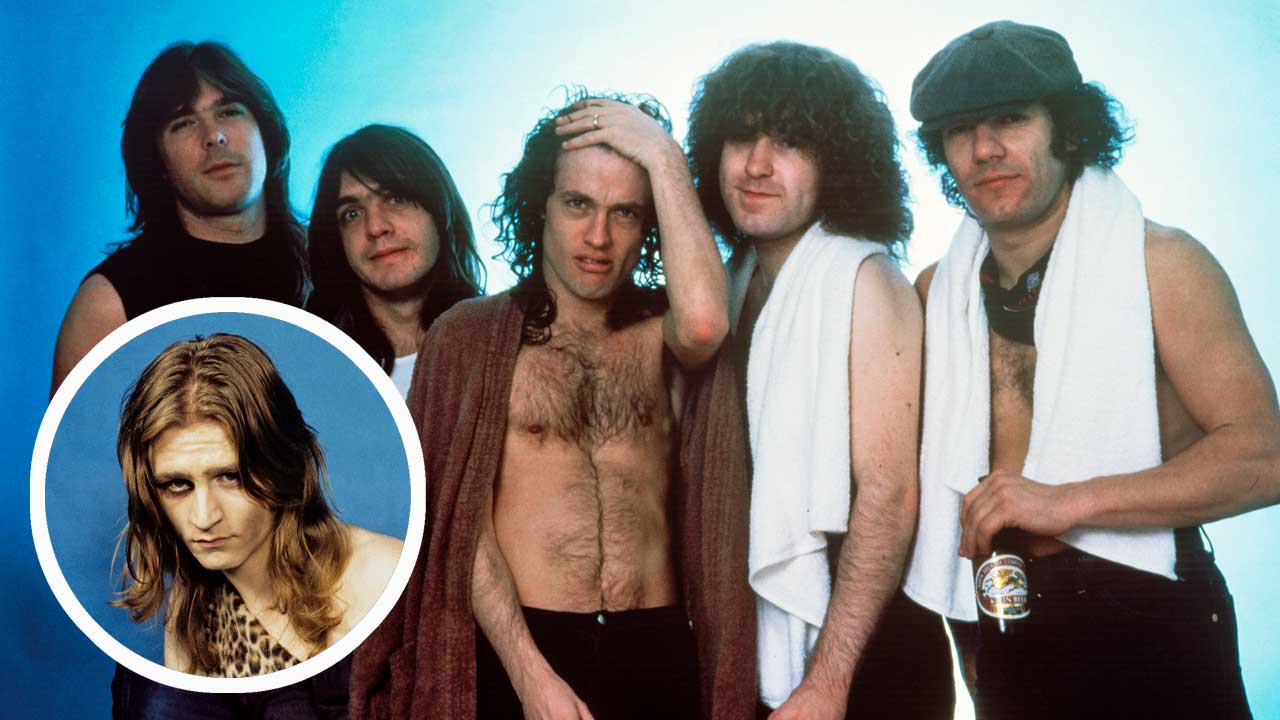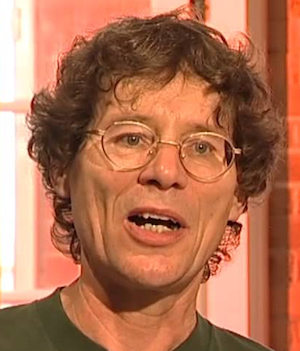In May 1983, AC/DC fired drummer Phil Rudd. The band were halfway through the sessions for the Flick Of The Switch album, but Rudd had already recorded his parts, so they could complete it without him.
Flick Of The Switch eventually came out in August. With the opening show of the following tour less than two months away, AC/DC needed a new drummer, and the man who appeared behind the kit when the band hit the stage for their first show at the Pacific Coliseum in Vancouver, Canada, was Simon Wright, the former sticksman with NWOBHM heroes A II Z and Tytan.
But Wright – said to have secured the job after playing just three songs with the band – wasn't the only one who auditioned for the role. Also in the running was Paul Thompson, who'd left Roxy Music in 1980. Below, Thompson recalls his audition.

How did you hear that AC/DC were seeking a drummer?
They tracked me down. I’d left Roxy Music in 1980 and I’d done a few things since but I was living on the Isle of Man at the time. Brian Johnson, who I’d grown up with back in the Geordie days, rang up and said they were looking for drummers and to expect a call from their tour manager. He called the next day and invited me to go over to New York, where the band were finishing their Flick Of The Switch album, and have a try-out for a few days. And he gave me a few AC/DC songs to learn – Back In Black, Shot Down In Flames, Highway To Hell.
On the face of it, Roxy Music and AC/DC aren’t a natural fit, although it must be said, you clearly weren’t the most glammed-up member of Roxy Music.
I certainly wasn’t. I went along with it but it never happened naturally. I really liked playing the music, though. But I’ve always regarded myself as a rock drummer. I mean, John Bonham is my number one hero.
So they got you a plane ticket?
Yes, I flew over and joined them at the Parker Meridien Hotel. The first evening I went down to the rehearsal studios at SIR where they had a drum kit set up – I think it must have been Phil’s kit – and I spent a couple of hours setting it up my way and playing around a bit.
The next day I went with Angus, Malcolm and Cliff and we tried out the songs. I remember the room was set up like a tiny club with this little stage and a mixer at the other end of the room where one of the crew was recording it onto cassette. At the end they asked if I could learn a few more songs and come back and try them tomorrow.
Was Brian there?
Yes. He popped in briefly but he didn’t hang around. I think he had recommended me and he wanted me to get the gig but he knew it was Malcolm and Angus’s decision and he didn’t want to interfere. I went out a couple of times for a beer with him and his then wife, who I also knew well.
How long were you there?
About a week. We spent several days playing more songs in the studio. Everything seemed to be going well from my point of view. I felt I was playing OK and I was also getting on with them well. It was obvious to me that Malcolm and Angus were in control but I really admired what they were doing. They did it their way and they didn’t compromise. They weren’t going to become some record company plan.
It all seemed to be going so well, but you didn’t get the job. What happened?
On the last night, we went out to an Indian restaurant and Malcolm told me that they ‘weren’t sure’. I’ve got to admit, I lost my appetite for a bit. It was hard to know what to say. They said they were going to have more auditions in London and said they’d get in touch when they were over.
And did they?
No. After a few weeks I rang Brian and his wife told me that they’d found another drummer. I was disappointed, but you have to accept these things.
But no explanation?
No, although a couple of years later I met one of the road crew who told me the problem was that I was ‘too big’. But I’ve no idea what truth there may be in that.
This feature originally appeared in Classic Rock 191, in December 2013.

